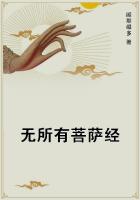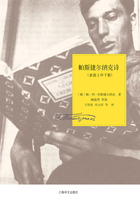"I have thought of all that," answered his father. "My object isn't to humiliate you more than is necessary for your good. The shop I have already selected, on the assumption that you would submit, is as quiet and out-of-the-way as you could wish. It is in a turning off Fetter Lane, where you'll see few other people than printers and caretakers. You'll lodge with a woman, a Mrs.
Postwhistle, who seems a very sensible person. She'll board you and lodge you, and every Saturday you'll receive a post-office order for six shillings, out of which you'll find yourself in clothes. You can take with you sufficient to last you for the first six months, but no more. At the end of the year you can change if you like and go to another shop, or make your own arrangements with Mrs. Postwhistle. If all is settled, you go there to-morrow. You go out of this house to-morrow in any event."
Mrs. Postwhistle was a large, placid lady of philosophic temperament. Hitherto the little grocer's shop in Rolls Court, Fetter Lane, had been easy of management by her own unaided efforts; but the neighbourhood was rapidly changing. Other grocers' shops were disappearing one by one, ****** way for huge blocks of buildings, where hundreds of iron presses, singing day and night, spread to the earth the song of the Mighty Pen. There were hours when the little shop could hardly accommodate its crowd of customers. Mrs. Postwhistle, of a bulk not to be moved quickly, had, after mature consideration, conquering a natural disinclination to change, decided to seek assistance.
Young Grindley, alighting from a four-wheeled cab in Fetter Lane, marched up the court, followed by a weak-kneed wastrel staggering under the weight of a small box. In the doorway of the little shop, young Grindley paused and raised his hat.
"Mrs. Postwhistle?"
The lady, from her chair behind the counter, rose slowly.
"I am Mr. Nathaniel Grindley, the new assistant."
The weak-kneed wastrel let fall the box with a thud upon the floor.
Mrs. Postwhistle looked her new assistant up and down.
"Oh!" said Mrs. Postwhistle. "Well, I shouldn't 'ave felt instinctively it must be you, not if I'd 'ad to pick you out of a crowd. But if you tell me so, why, I suppose you are. Come in."
The weak-kneed wastrel, receiving to his astonishment a shilling, departed.
Grindley senior had selected wisely. Mrs. Postwhistle's theory was that although very few people in this world understood their own business, they understood it better than anyone else could understand it for them. If handsome, well-educated young gentlemen, who gave shillings to wastrels, felt they wanted to become smart and capable grocers' assistants, that was their affair. Her business was to teach them their work, and, for her own sake, to see that they did it. A month went by. Mrs.
Postwhistle found her new assistant hard-working, willing, somewhat clumsy, but with a smile and a laugh that transformed mistakes, for which another would have been soundly rated, into welcome variations of the day's monotony.
"If you were the sort of woman that cared to make your fortune," said one William Clodd, an old friend of Mrs. Postwhistle's, young Grindley having descended into the cellar to grind coffee, "I'd tell you what to do. Take a bun-shop somewhere in the neighbourhood of a girls' school, and put that assistant of yours in the window. You'd do a roaring business."
"There's a mystery about 'im," said Mrs. Postwhistle.
"Know what it is?"
"If I knew what it was, I shouldn't be calling it a mystery," replied Mrs. Postwhistle, who was a stylist in her way.
"How did you get him? Win him in a raffle?"
"Jones, the agent, sent 'im to me all in a 'urry. An assistant is what I really wanted, not an apprentice; but the premium was good, and the references everything one could desire."
"Grindley, Grindley," murmured Clodd. "Any relation to the Sauce, I wonder?"
"A bit more wholesome, I should say, from the look of him," thought Mrs. Postwhistle.
The question of a post office to meet its growing need had long been under discussion by the neighbourhood. Mrs. Postwhistle was approached upon the subject. Grindley junior, eager for anything that might bring variety into his new, cramped existence, undertook to qualify himself.
Within two months the arrangements were complete. Grindley junior divided his time between dispensing groceries and despatching telegrams and letters, and was grateful for the change.
Grindley junior's mind was fixed upon the fashioning of a cornucopia to receive a quarter of a pound of moist. The customer, an extremely young lady, was seeking to hasten his operations by tapping incessantly with a penny on the counter. It did not hurry him; it only worried him. Grindley junior had not acquired facility in the fashioning of cornucopias--the vertex would invariably become unrolled at the last moment, allowing the contents to dribble out on to the floor or counter. Grindley junior was sweet-tempered as a rule, but when engaged upon the fashioning of a cornucopia, was irritable.
"Hurry up, old man!" urged the extremely young lady. "I've got another appointment in less than half an hour."
"Oh, damn the thing!" said Grindley junior, as the paper for the fourth time reverted to its original shape.
An older lady, standing behind the extremely young lady and holding a telegram-form in her hand, looked indignant.
"Temper, temper," remarked the extremely young lady in reproving tone.
The fifth time was more successful. The extremely young lady went out, commenting upon the waste of time always resulting when boys were employed to do the work of men. The older lady, a haughty person, handed across her telegram with the request that it should be sent off at once.
Grindley junior took his pencil from his pocket and commenced to count.
"Digniori, not digniorus," commented Grindley junior, correcting the word, "datur digniori, dative singular." Grindley junior, still irritable from the struggle with the cornucopia, spoke sharply.















